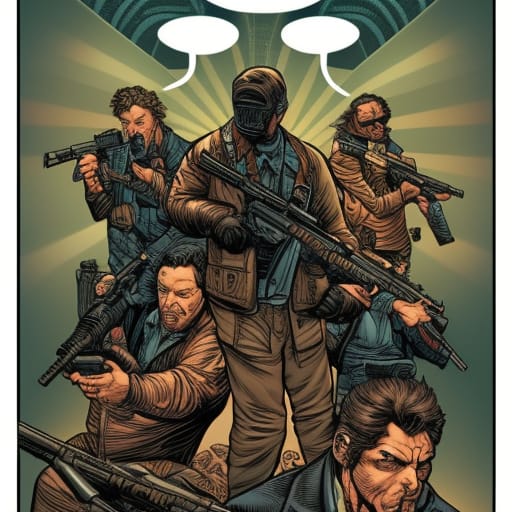The most tragic failure of gun control advocates, and prohibitionists in general, is ignorance of economics. There are unintended consequences of gun control that are intuitively obvious, such as denying law-abiding citizens the means to self-defense. These are the most important reasons to reject gun control.
However, one of the most interesting unintended consequences of prohibition is entirely counter to intuition, and it is evidenced in our long history of experience in alcohol and drug prohibition. A ban on something will mean that only criminals may have it. Since ordinarily law-abiding citizens must now resort to criminal activity to have that thing, they are suddenly accepting great risk to obtain that thing. Given that they are putting themselves at great risk, they might as well get their money’s worth, so the cost-benefit analysis makes it a rational choice to obtain things of higher potency. If you want a booming market in heroin and meth, all you have to do is ban the more benign drug, marijuana. The science tells us this is true.
Gun control advocates are seeking to ban the relatively ordinary AR-15 semi-automatic rifle, which is as potent a weapon as any semi-automatic hunting rifle, except with cosmetic and ergonomic qualities that give it a military weapon appearance, but not the lethality. The stated intent is to remove from the market what these advocates believe is an extraordinarily lethal weapon, which they believe is a weapon for mass murder (a so-called “assault weapon”).
When we apply the economics of prohibition to gun control, we can see that the actual unintended consequence that logically follows from enacted a ban on the AR-15 would be criminals resorting to higher potency weapons. We need only look a few months back to Paris, where gun prohibition could hardly be more strict. The mass murderers utilized AK-47 automatic rifles (“machine guns”) and grenades, true weapons of war.
A quote from Eagles of Death Metal’s Jesse Hughes says it best.
“Did your French gun control stop a single person from dying at the Bataclan? If anyone can answer yes, I’d like to hear it, because I don’t think so. I think the only thing that stopped it was some of the bravest men that I’ve ever seen in my life charging head-first into the face of death with their firearms.”
“I know people will disagree with me, but it just seems like God made men and women, and that night guns made them equal,” he continued (cribbing an old adage-turned-bumper-sticker slogan about revolver manufacturer Sam Colt). “I think the only way that my mind has been changed is that maybe that until nobody has guns everybody has to have them, because I don’t want to see anything like this ever happen again, and I want everyone to have the best chance to live. I saw people die that maybe could have lived. I don’t know, but I wish I knew for sure that if they could have had a better chance, because there were some real angels, real wonderful people at that show.”
See also: The Economics of Prohibition

Threaten to pass laws that ban or restrict gun ownership. The response is: gun sales skyrocket, as everyone who wants a gun will buy one ahead of any policy change.
Pass laws that ban or strictly regulate gun ownership, a highly desired commodity. The response is: nobody respects the law or regulations. People will buy and keep guns in complete disregard for the law and regulations.
Reduce the supply of legal gun sales and increase prices to discourage demand. The response is: suppliers enter the black market, attracted by the high prices, to meet the demand.
Drive the market for guns underground. The response is: violence skyrockets when legal transactions are replaced by black market transactions, where disputes cannot be resolved by the legal system.
Make the black market dangerous. The response is: the product becomes more potent, as riskier transactions justify getting your money’s worth by maximizing the return on investment.
Summary: if you want people to abide by the law and social order, you don’t pass laws that prohibit highly desirable commodities. If you want violence and chaos, implement prohibition. [n.b.: alcohol prohibition 1920-1933, war on drugs in the present day]
Looser gun laws result in lower demand for guns.
Tighter gun laws result in higher demand for guns.
http://www.foxnews.com/us/2018/03/25/gun-maker-remington-files-for-bankruptcy.html
London has some of the world’s strictest gun control regulations. Criminals have resorted to knives. Stabbings have become such a horrible problem that now strict knife control measures are in force. Perhaps the government should consider banning murder, if they believe laws are effective at preventing crime.
http://theantimedia.com/london-violence-cause-obvious/